Everyone’s gotten a little over-excited with making hard-boiled eggs.
You boil a dozen – or two – with the idea of making a whole bunch of egg salad, but soon realize that there is a limit to how much you can eat.
What should you do with those extra hard-boiled eggs? Can hard-boiled eggs go bad, and how long will they keep in your fridge?
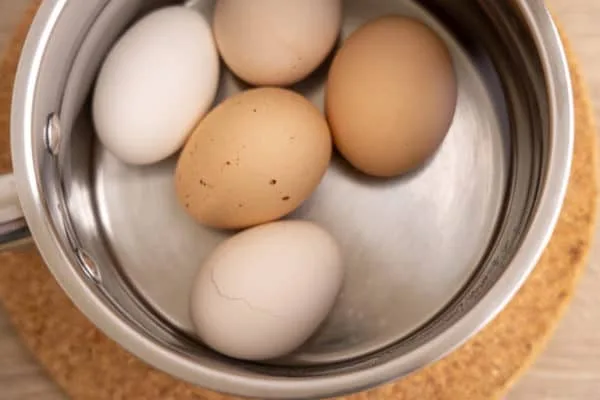
Can Hard Boiled Eggs Go Bad?
Hard-boiled eggs can go bad, and actually have a surprisingly short shelf life. In fact, hard-boiled eggs actually have a shorter shelf life than raw eggs that are still in the shell.
This is because boiling the eggs removes the protective outer layer that coats the shell, making the shell vulnerable to air, bacteria, and other contaminants.
Though boiling the eggs will make the shells more porous, that outer layer of protection still helps to keep eggs fresh longer.
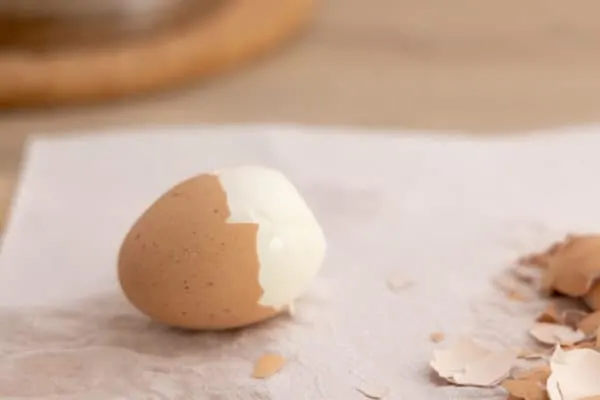
The shelf life of a hardboiled egg in the shell is about seven days. Once you peel the eggs, it drops to only around three to five days.
To ensure the safety of the hardboiled eggs, they should always be chilled immediately after making.
Transferring the eggs from the boiling water to a bowl of ice water, and then the refrigerator can keep the temperature in a safe range.

How to Tell When Hard Boiled Eggs Go Bad
The most noticeable sign that a hard-cooked egg has gone bad is the odor.
If the egg has any sort of unpleasant, sulfurous, or rotten smell, it has gone bad and should not be consumed.
If the hard-boiled egg is still in its shell, you may have to crack it open in order to notice any odor.
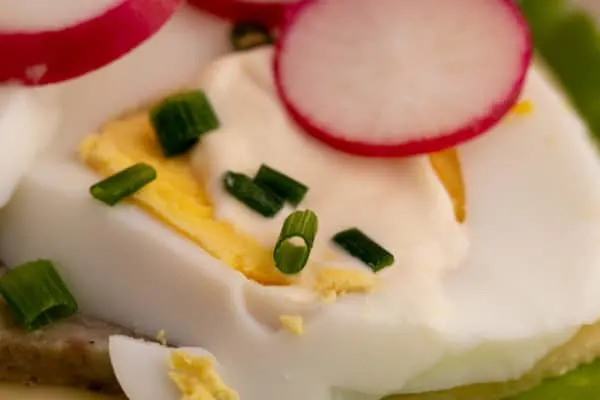
Many people assume that when the yolk of a hard-boiled egg is gray or green, that the egg has gone bad. However, this is not the case ([USDA]), and the color of the yolk actually has more to do with the cooking time.
Perfectly cooked hard-boiled eggs will have a deep yellow to golden color and creamy texture. The longer the egg is cooked, the paler the yolk becomes in color, until it eventually turns greenish or grayish. The texture will become increasingly chalky as the color changes.
If yolks of your hard-boiled eggs are often green, make sure you’re not overcooking the eggs.
This gray tinge is actually caused by a chemical reaction that occurs within the yolk.
The egg is still safe to eat at this point, though it may have a less appealing taste and texture than eggs that were properly cooked.
In short, if you find it gross, it’s better to discard it than force yourself to consume it.

Can You Freeze Hard Boiled Eggs?
While you can technically freeze hard-boiled eggs, it is not really recommended as a method to preserve whole eggs. The freezing process will change the texture of the egg whites, and they can become rubbery.
If you want to freeze hard-boiled eggs for an egg salad, or similar dish with chopped eggs, you should freeze the eggs separately without any of the other ingredients. Mayonnaise, spices, and other seasonings can be added when the eggs thaw.
Freeze the eggs by chopping them or grating them into a tightly sealing container or freezer bag. Be sure to write the date on the outside of the container, as hard-boiled eggs are best for only a month or two in the freezer.
Thaw hardboiled eggs in the container overnight and consume within two days.
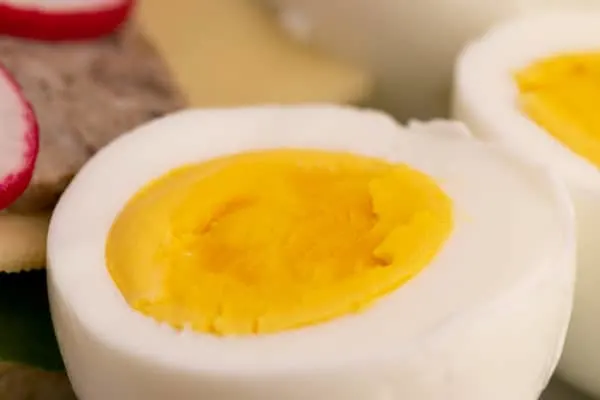
Another way you can preserve hard boiled eggs for longer than a week is to pickle them.
There are many easy recipes available online for pickled eggs, just be sure to use a brine recipe that is high in salt or vinegar, to prevent unwanted bacteria growth.
Pickled eggs can be stored in the refrigerator for up to four months.
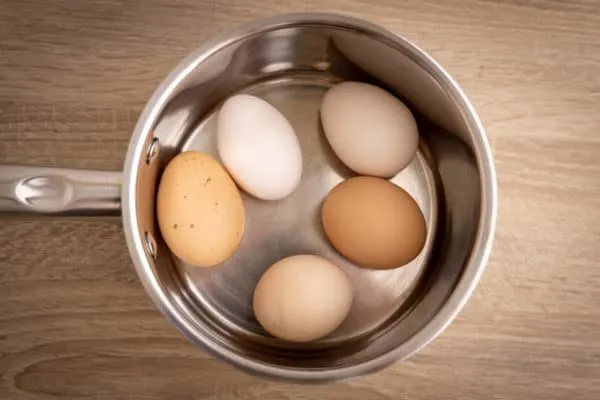
Summary
- Hard-boiled eggs last for about a week in-shell, and for 3 to 5 days after peeling.
- Keep hard-boiled eggs in the fridge, possibly in a closed container.
- Freezing hard-boiled eggs is an option, although the whites can become rubbery. It’s probably better to pickle the eggs or make one more salad.